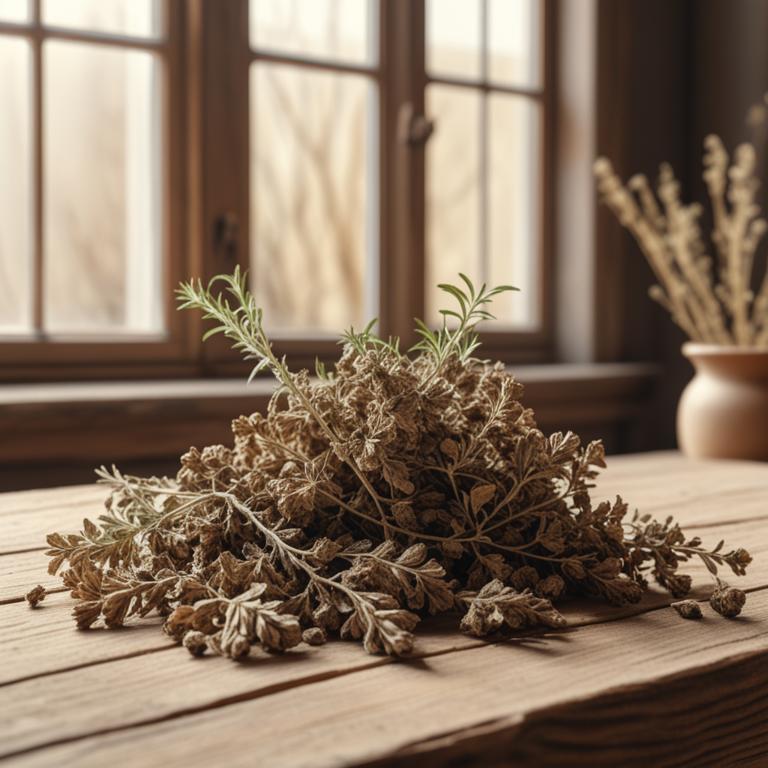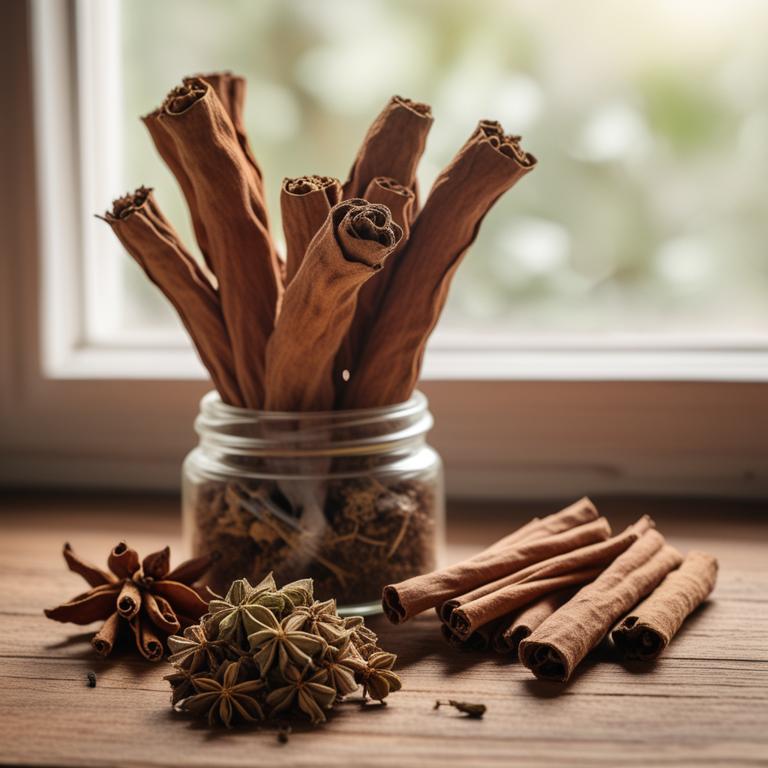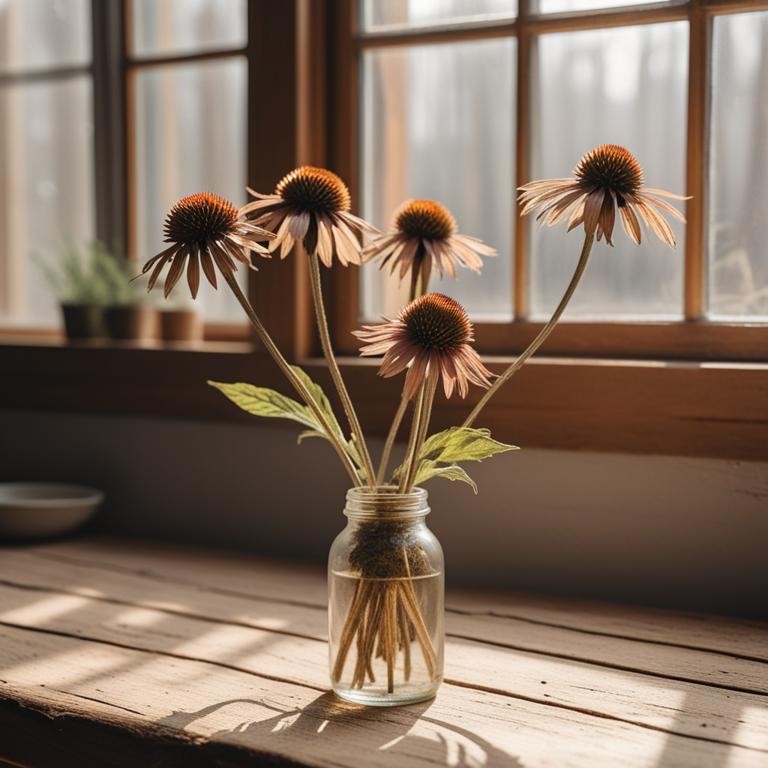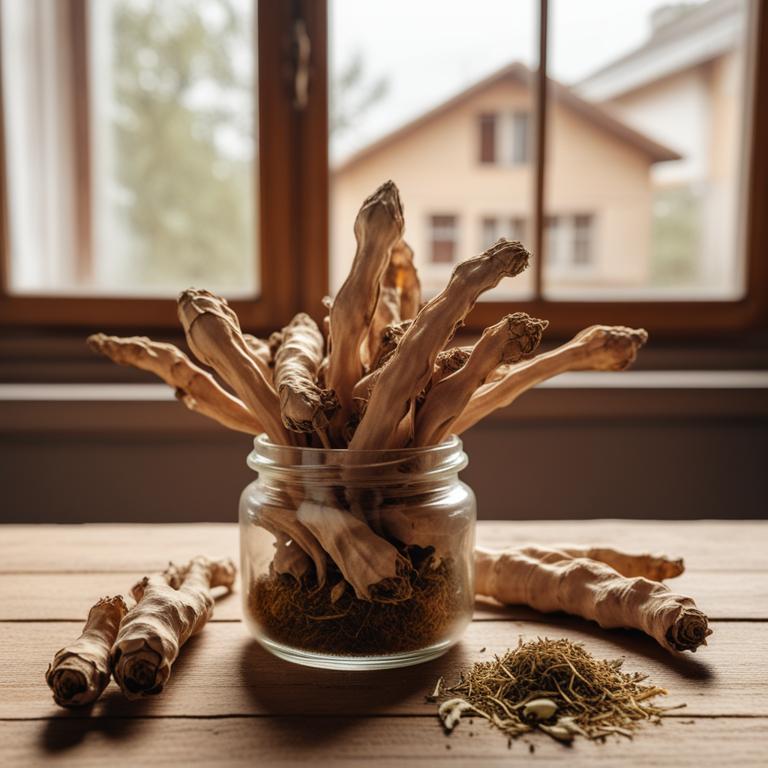Updated: Dec 1, 2024
The Role of Medicinal Herbs in Preventing Infection
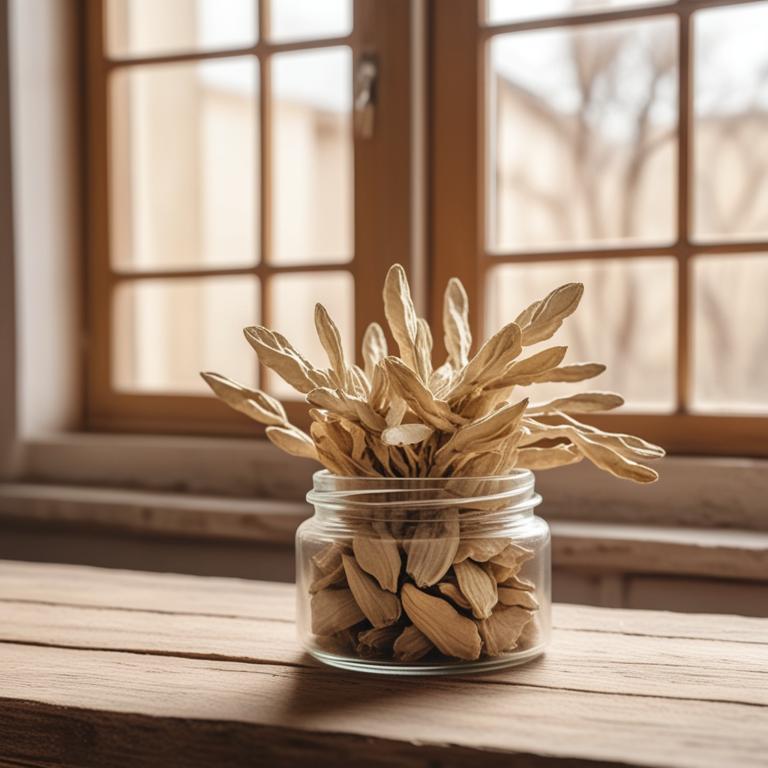
Infection is when germs enter your body and cause harm.
It can make you feel tired, weak, and in pain. It can even lead to serious problems like fever, swelling, and organ damage. Infections can be caused by viruses, bacteria, or fungi that enter your body through cuts, wounds, or open sores. They can also be spread through contact with infected people, contaminated water or food, or dirty surfaces. To fight off infection, you can use herbal remedies that have been used for centuries.
Herbs like garlic, ginger, and turmeric have powerful anti-inflammatory and antibacterial properties that can help to reduce swelling and kill germs. Echinacea and goldenseal are also popular herbs for boosting the immune system and fighting off infection. You can use these herbs to make teas, tinctures, or salves that can be applied directly to the affected area. Garlic tea, for example, can be made by steeping crushed garlic cloves in hot water. Ginger tea can be made by steeping fresh ginger root in hot water. You can also add a few drops of echinacea tincture to your tea or water to give your immune system a boost.
Goldenseal salve can be applied directly to wounds or cuts to help them heal faster.
Table of Contents
What initiates the process of infection?
The main causes of infection are often linked to the presence of bacteria that have become resistant to antibiotics.
MRSA (Methicillin-resistant Staphylococcus aureus) is a type of bacteria that has developed resistance to many antibiotics, making it difficult to treat. This usually happens in hospitals and healthcare settings where patients are exposed to antibiotics for extended periods. VRE (Vancomycin-resistant Enterococci) is another type of bacteria that has developed resistance to antibiotics, particularly vancomycin, a commonly used antibiotic. E. coli (Escherichia coli) is a type of bacteria that is commonly found in the gut and can cause infections when it enters the bloodstream or other parts of the body.
Pseudomonas is a type of bacteria that thrives in moist environments and can cause infections in people with weakened immune systems. Clostridioides (also known as Clostridium) is a type of bacteria that produces spores and can cause infections such as tetanus and botulism. MRSA and VRE can be spread through close contact with an infected person, contaminated surfaces, or medical equipment. E. coli and Pseudomonas can enter the body through cuts or wounds, while Clostridioides can enter the body through a cut or wound or through the ingestion of contaminated food or water.
The risk of infection from these bacteria can be reduced by practicing good hygiene, such as washing hands regularly, using antibiotics judiciously, and taking steps to prevent the spread of infections in hospitals and healthcare settings.
What are the advantages of using herbs to manage infection?
Using herbs to fight infections can be very helpful.
One of the main benefits is that they are natural, so they don't have harsh chemicals that can cause side effects. This makes them a good option for people who can't take medication or want a more gentle approach. Herbs can also be very effective at targeting the root cause of the infection, rather than just treating the symptoms.
This can help the body heal faster and reduce the risk of the infection coming back. Additionally, herbs can be used to boost the immune system, which can help prevent infections from happening in the first place. They can also be used to soothe and calm the body, reducing fever and discomfort.
Many herbs have antibacterial and antiviral properties, which can help fight off infections and prevent them from spreading.
What are the primary herbal treatments for infection?

Herbs have been used for centuries to help fight off infections, and many of them are still effective today.
Echinacea purpurea and Echinacea angustifolia are two types of echinacea that work well together to boost the immune system, making it easier for the body to fight off infections. They have anti-inflammatory properties that can help reduce swelling and pain. Eucalyptus globulus is a natural decongestant that can help clear mucus from the airways, making it easier to breathe when you have a cold or flu. Zingiber officinale, or ginger, is a natural anti-inflammatory that can help reduce nausea and pain.
It also has antimicrobial properties that can help fight off bacteria and viruses. Ginkgo biloba is another herb that can help boost the immune system and reduce inflammation. It also has antioxidant properties that can help protect cells from damage caused by free radicals. Note: The information above is not a substitute for medical advice. Herbs can interact with medications or worsen certain health conditions.
Always consult a healthcare professional before using herbs to treat infections.
What herbal preparations are commonly employed to treat infection?
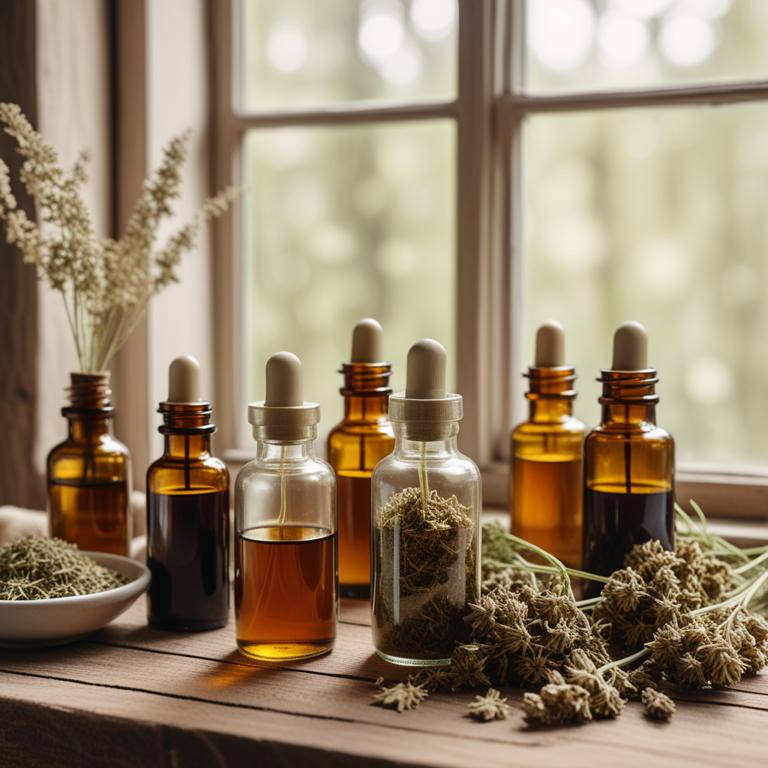
Herbal preparations are great for fighting infections because they can get into the body in different ways.
Let's start with infusions - they're like teas made from herbs like peppermint or chamomile. The liquid form makes it easy for the active ingredients to get absorbed into the bloodstream, helping to fight off the infection. Then there are decoctions, which are like strong infusions made by simmering herbs in water. This process brings out the good stuff, making it even more effective at fighting infections. Tinctures are another type of herbal preparation that's great for infections. They're made by soaking herbs in a liquid like alcohol or glycerin, which helps to bring out the active ingredients.
When you take a tincture, the liquid gets absorbed into the bloodstream quickly, giving your body a boost of infection-fighting power. Capsules are also a good way to get herbal medicine into your body. They contain dried herbs that are crushed into a powder, which is then put into a capsule for easy swallowing. This form is great for people who have trouble swallowing liquids or have sensitive stomachs. Suppositories are a type of herbal preparation that's inserted into the body through the rectum. They're made from dried herbs that are mixed with a base like cocoa butter or vegetable oil. This form is great for infections that are internal, like those in the gut or genital area.
The herbs get absorbed into the bloodstream quickly, giving your body a powerful dose of infection-fighting medicine.
Additional Resources:
Which herbs are contraindicated if you have an infection?
If you have an infection, it's best to avoid certain herbs that can make things worse.
Taxus baccata, also known as yew, contains a toxic substance that can slow down your heart rate and even cause death. This is not what you need when you're already dealing with an infection, as your body is trying to fight it off. Aristolochia clematitis, also known as birthwort, has been linked to kidney damage and can make your infection worse by weakening your body's ability to fight off bacteria and other invaders.
Digitalis purpurea, or foxglove, is used to treat heart conditions, but it can be toxic in large amounts and interact poorly with antibiotics, which are often prescribed to treat infections. Podophyllum peltatum, or mayapple, contains a toxic substance that can cause vomiting, diarrhea, and even death in large doses. This is not something you want to add to your system when you're already dealing with an infection. Aconitum napellus, or monk's hood, is highly toxic and can cause a range of symptoms including nausea, vomiting, and even heart problems.
It's not a good idea to take it when you have an infection, as it can interact with your medication and make your condition worse.
FAQ
Are there any specific herbs that can prevent infection?
Echinacea is an herb that's often used to boost the immune system and help the body fight off infections.
It's thought to help the body's natural defenses by increasing the production of white blood cells.
Some people also use garlic and goldenseal to help prevent infections, as they have antibacterial properties.
Is it safe to use herbal remedies for infection during pregnancy?
If you're pregnant and considering herbal remedies for an infection, be cautious.
Some herbs can affect your baby's growth or cause problems during delivery. For example, pennyroyal and blue cohosh can be too strong and harm your baby.
Always check the ingredients and potential risks before taking any herbal remedy.
Are there any herbs that can reduce the frequency of infection?
Some herbs, like Echinacea and garlic, have been studied for their potential to boost the immune system.
Echinacea is thought to increase the production of white blood cells, which fight off infections.
Garlic contains compounds that have antibacterial properties, helping to prevent the growth of bacteria that can cause illness.
Can i combine different herbal remedies for infection?
You can combine different herbal remedies for infection, but use caution.
Some herbs can interact with each other or worsen symptoms. For example, if you're taking aloe vera for a sore throat, it might not mix well with echinacea, which can cause digestive issues.
Start with small amounts and observe how your body reacts.
Related Articles
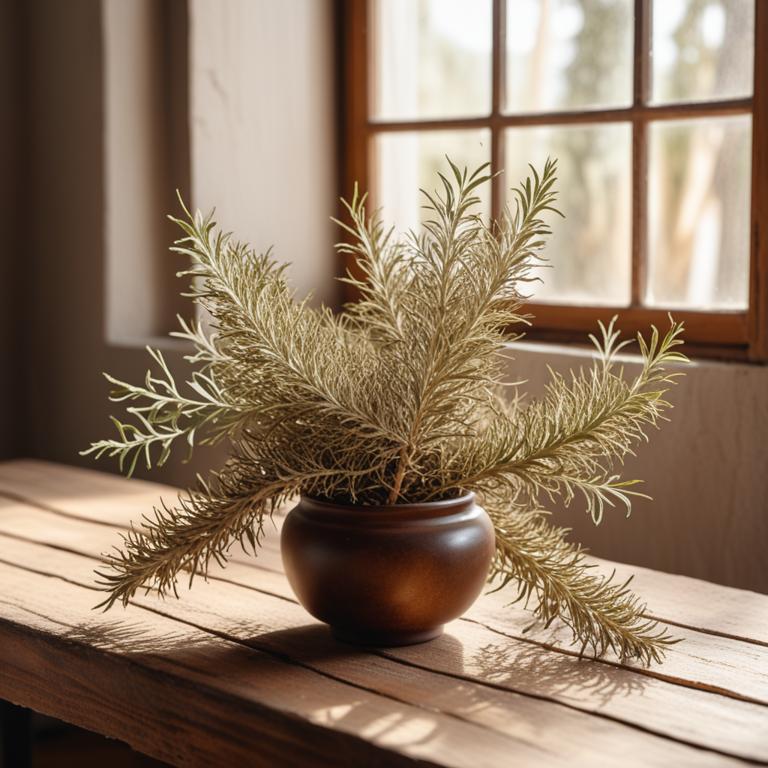
Inflamed Gums: A Guide to Causes, Medicinal Herbs, and Remedies
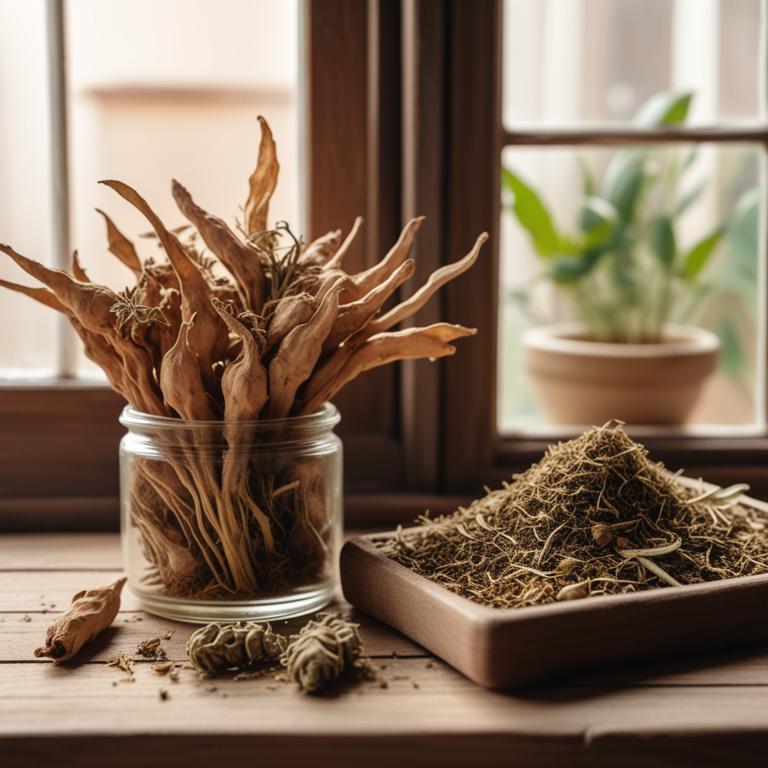
Tonsillitis: Causes, Herbal Remedies, and Homeopathic Preparations

Feverish Feeling: Causes, Symptoms, and Herbal Solutions

The Science and Treatment of Fever with Medicinal Herbs
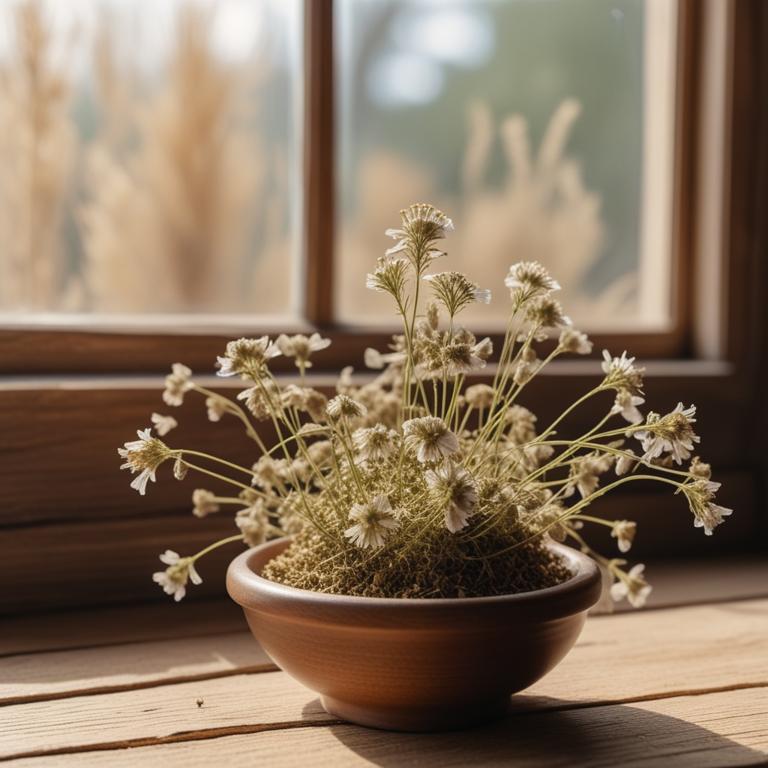
Pink Eye Causes and Natural Treatments with Medicinal Herbs
